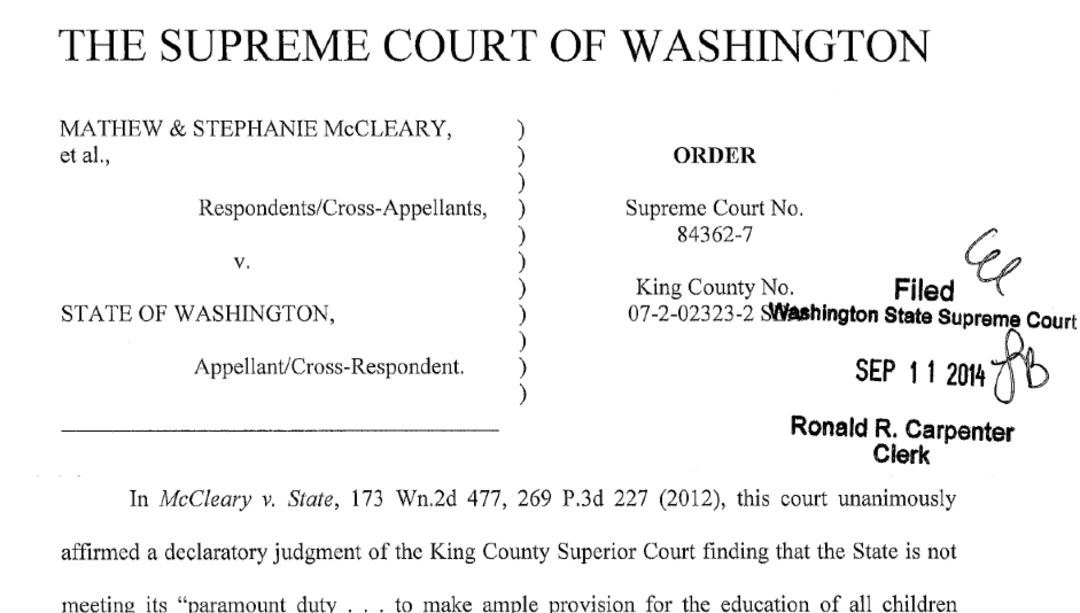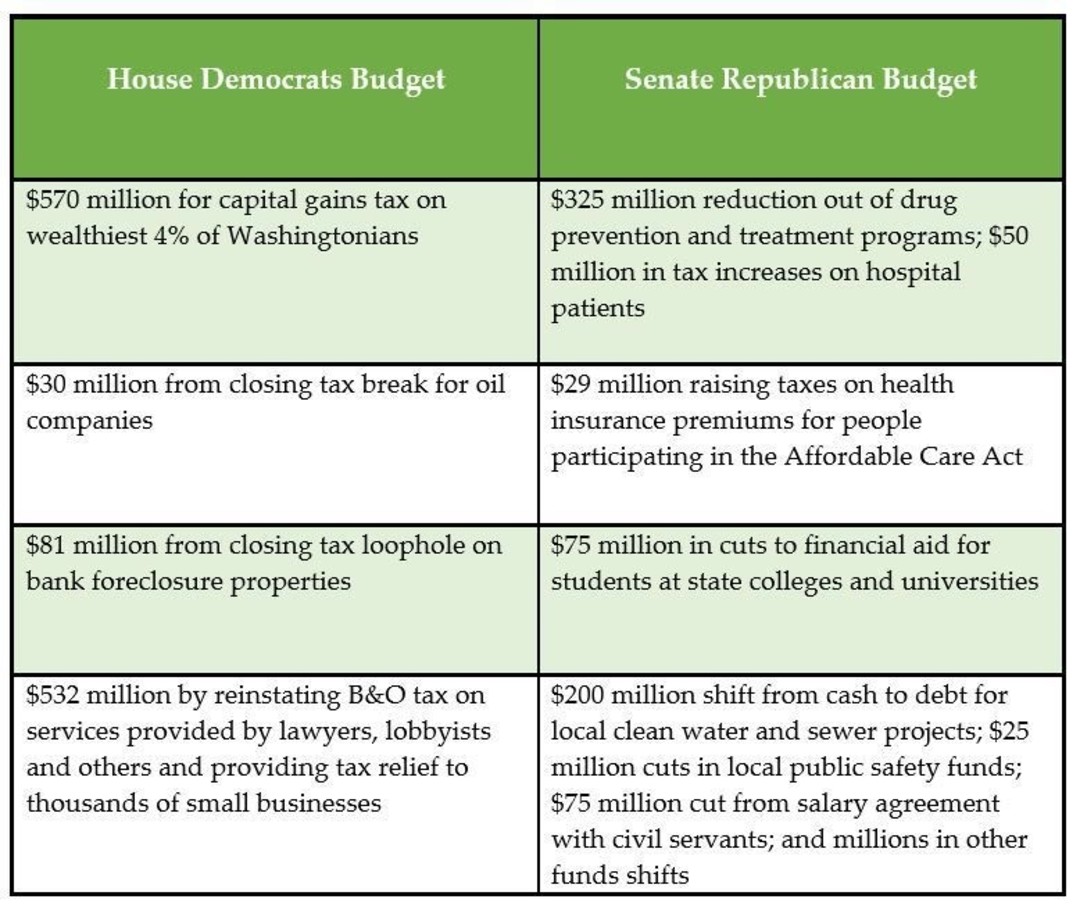GOP Budget Creates McCleary Collision Course

As everyone but the Republicans in the state senate seem to know, the Washington State Supreme Court held the state in contempt for not fully funding K–12 education. The court, however, put off sanctions and remedial measures by giving lawmakers until the end of this year's legislative session to come up with a plan to fully fund K–12 education through the end of 2017–18 school year.
Fully funding education between now and 2018, according to nonpartisan legislative staff, means: $1.4 billion in the current biennium and $1.2 billion in the 2017–19 biennium.
Why am I picking on the Republicans? After all, the senate budget proposal puts an additional $1.3 billion into K–12 funding (on top of current maintenance levels). The Democratic house budget only slightly outdoes that with a $1.4 billion add-on. (A quick note: The current maintenance level is $17.5 billion and includes new McCleary money already committed in the last budget cycle when the state put in $980 million in new K–12 spending...which was about $400 million shy of the target, by the way. So, in actual new dollars, the senate Republicans are putting in about $500 million and the Democrats are putting in $1 billion.)
Here's the big problem with the GOP budget, though: About $800 million of the money they're supposedly adding into the general fund to help pay for K–12 education comes from harsh cuts elsewhere. Some examples: $325 million comes from drug treatment and rehabilitation money (those dollars are pot revenues mandated by voters for the treatment programs); $75 million comes from cuts to financial aid for college students; $200 million comes from clean water funds; and $41 million comes from cuts to the Temporary Assistance for Needy Families program. (The Republicans also cut college tuition by 25 percent.)

In contrast, the Democrats' $1.2 billion extra to the general fund comes from $570 million in a proposed capital gains tax on wealthy taxpayers (as I reported at the beginning of the legislative session, Republican senate budget chair state senator Andy Hill, who rejected the idea, would likely get hit hard if a captial gains tax was enacted); $110 million in closing corporate tax breaks for oil refineries and banks; and $530 million in B&O taxes that were imposed on larger service industry businesses (lawyers, financial services) during the Great Recession to offset a tax credit for small businesses.
"I worry that this senate budget proposal may set the stage for furthering the constitutional crisis between the legislature and the supreme court." —State senator David FrocktAfter the Republican-controlled senate passed the budget on straight party lines this month, state senator David Frockt (D-46, North Seattle) said:
“The state has already been held in contempt of court for failing to deliver a plan to fully, adequately, and sustainably fund education, and another budget balanced through gimmicks and debt is regrettably a step backwards in that ongoing effort. I recognize that the budget reduces tuition and funds a few key programs... But it still fails to fund the State Need Grant for our lower-income students and leaves 30,000 likely unserved. I worry that this senate budget proposal may set the stage for furthering the constitutional crisis between the legislature and the Supreme Court."
Frockt also bashed the budget for not funding I-1351, the class-size initiative that voters passed last November. But the house Democrats are delinquent on that funding as well; both the senate Republicans and the house Democrats only fund class-size reductions in K–3 (at about $400 million each), which was already part of the McCleary plan. I-1351 called for class size reductions up through 12th grade, which would cost a about $2 billion.
The Democrats are more generous on teacher compensation, though. That's no surprise. As I reported in Fizz this morning, by failing to accept state employee contracts, the GOP spends about $500 million less on state workers. (The Columbian has pointed out the same discrepancy.) The biggest gap between the house and senate budgets is teacher compensation. While both the Republicans and the Democrats allocate $230 million in voter-mandated cost of living increases for teachers, the Democrats add $356 million in additional cost of living adjustment and health benefit adjustments to keep teachers in sync with other state employees (line items that are at zero in the Republican budget). As a result, the house Democrats spend $380 million total on compensation adjustments to the GOP's $10.6 million for teachers. Other compensation adjustment items include expanding all-day kindergarten, which both budgets do.




